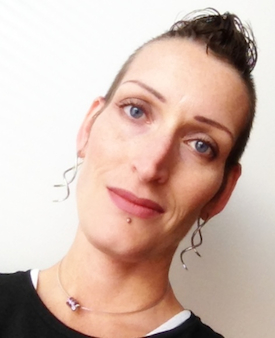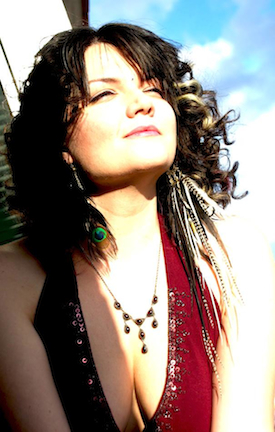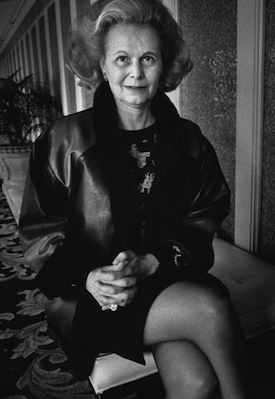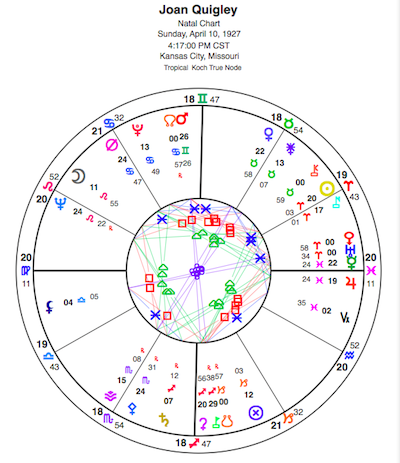Editor’s Note: This week’s sex-and-relationships guest-post comes from Christina Louise Dietrich, whom we featured Sept. 26. You can read more of her writing at her own blog. — Amanda
By Christina Louise Dietrich
Patterns develop around our responses to significant (usually traumatic) life occurrences and manifest as a recording that, when played, seems to temporarily take control of us. It’s important to remember that the pattern is not the person; it’s actually an external, rigid, repeating, non-survival value recording that opposes the flexible, creative, loving behavior of the rational, thinking human. Patterns can affect every aspect of our existence—mental, physical, spiritual, behavioral—and when re-stimulated or triggered, prevent any forward movement or progress. Patterns are all about the past. — taken from Nekole Shapiro’s Holistic Peer Counseling (HPC) curriculum
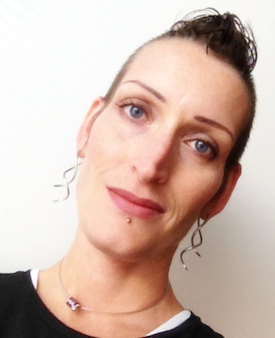
Christina Louise Dietrich
The last week has been an exceptionally difficult one for my husband and I because we’ve been uncovering more information about our core pattern complexes. In truth, whenever this happens — and no, this isn’t the first time — it totally fucking sucks; it’s painful and embarrassing; I get sunk intermittently in my shame; I want to disappear, maybe even die in that childish way that yearns for release from the responsibility of living.
Both Brendan and I were born into dysfunctional families suffering at the intersection of rape, oppression, isolation, abuse, depression, and neglect; his significantly more so than mine. The scars we bear as children of these families makes it obscenely hard for us to prioritize care for ourselves, have healthy boundaries, trust others, trust our bodies, be parents, and maintain consistent, nourishing social interactions.
When we met, we had both done personal work including Landmark Education, anger management group therapy, cognitive behavioral therapy, and embodiment work. By the time we decided to make a baby together 18 months later, we were committed to healing and re-parenting one another, an embodied birth, and raising our son in a way that was diametrically opposed to how we had been raised. We actually had no clue what we were in for when we made those commitments.
Patterns affect our inter-personal relationships all the time; in fact, it’s not uncommon to gravitate toward a relationship specifically because the other person’s patterns interlock with ours. — HPC curriculum
My mother was not adequately resourced when she gave birth to me. (I laugh even writing that because goddamn what an understatement.) My father kept her terrorized, abused, and isolated, which was pitifully easy given that she’d been brought up under the influence of a patriarchal church that taught her the man was in charge, taught her to honor and obey, taught her to be meek and never prideful. She thought all men were relatively honorable, upstanding men of the community like her conservative, wheat-farming father and her brothers.
As a result of her near-complete lack of support, she leaned on me more than was healthy for either one of us, especially after my baby sister was born when I was 2-1/2. I was her Big Girl; the reliable one, the helpful one, the one who learned to always make time and space for Mommy’s distress and pain. There was a lot of pain. Both she and I had to live with the consequences of her shameful marriage, his sexual abuse of me, his all-encompassing abuse of her, and his eventual abandonment of us when I was 5 for less-complicated pastures. We became emotionally enmeshed and fiercely co-dependent.
There was scant room for Little Chrissy’s pain, thoughts, dreams, or concerns. Because Mommy’s distress filled the room, sucked up all the air, and entertained no competitors—not even her daughters. I had no choice: I had to support her, had to supplant myself and keep her healthy because otherwise I would die or she would abandon me. She was my survival line and I loved her. After all, look how much she suffered just to keep her head up and food on the table; how hard it was for her to live with the daily shame of Going Back Home in disgrace after a violently failed marriage. Someone had to stand up for her.
As the years went by and my mother honed her Victim/Martyr patterns, I unconsciously began to hate and resent both her and her ever-present demands regarding who I should be and to whom I should give my attention. In fact, in addition to my growing perfectionism-bordering-on-OCPD, I developed an acute case of what I now know to be demand resistance. From Too Perfect: When Being in Control Gets Out of Control:
Somehow, “I want” turns into “I should.” In fact, the phrase “I want” is a rarity in their (the obsessive’s) thinking and their vocabulary. Instead of “I want to,” they usually experience and say “I ought to,” “I must,” or “I should.” Volition is replaced by obligation. […] This is a childhood safety-seeking maneuver that becomes ingrained in the obsessive’s character, a maneuver that comes to serve many motives:
– People who need to be above reproach are often most comfortable when they feel their decisions/actions are being dictated by outside forces.
– It’s harder to criticize someone who’s “only following orders,” as opposed to one doing something he initiated himself.
In the obsessive’s worldview, where conscientiousness is king, it’s better to be fulfilling one’s duty than satisfying one’s own needs. But the cost of unconsciously disowning one’s desires are high. […] When most of your activities feel like obligations, you can reach a point where nothing gives you pleasure, and life feels meaningless. You don’t feel like an active participant, but instead experience yourself as a passive recipient, grinding away at the obligations that are laid upon you. You may feel powerless; you may lack a clear, stable sense of self.
Without a clear identity, a solid sense of self, or a clear sense of what you want, you feel insubstantial, passive, and more vulnerable to external influences, especially the wishes of others. Because you feel (at an unconscious level) as if your sense of self can at any moment be overrun by more powerful outside forces, you are compelled to guard against people who seem strong or intrusive, or who get too close. […]
The obsessive learns that withholding gives them power, keeps them in control. “When I know somebody wants something from me, I don’t do it. It’s so automatic, it ends up being more important for me to hold back than to decide what I want. I balk at expectations simply because I perceive them as demands.“
Demand resistance is closely connected with interpersonal control. First, it’s a way of safeguarding one’s fragile sense of self by refusing to be overpowered or controlled by others. Second, it is a way of reassuring oneself that one can have a subtle impact on — and control over — others by frustrating them.
This is exactly what I do to Brendan; it’s what I’ve done to him for the entirety of our six years together. Because (as the person I currently love and am beholden to the most) he represents Mother in my personal constellation. The problem is, Little Chrissy and her gang of feral compatriots don’t yet understand that we can make choices about who we help; that we now have tools and insight and loving compassion. That we now have an identity and a semi-solid sense of Self.
My side of the interlocking pattern is “IF I help you, I’m not going to do it unless you’re half-dead with need and bleeding out on the floor; because that’s the only way I’ll know you aren’t a threat.” Brendan’s side of the interlocking pattern (as I currently understand it) is “No one ever helps me because I don’t matter and am worth nothing except for what I give. So I will give until I’m dead.” See how nicely those fit together?
Brendan has pointed out facets of my pattern over the years, but because it’s SO core to who I am and permeates literally everything I touch, it’s been impossible for me to see in totality. More importantly, it’s a slippery fucker, needs to defend itself vigorously against attack, and the character of Brendan’s pattern allowed it to continue doing so.
The experience of falling into a pattern is generally unpleasant due to internal conflict and imbalance: while the pattern itself may be defensive, our psyches prefer to be rational and integrated. As a result, we may defend our patterned behaviors fiercely, which usually occurs because our psyches see no alternative and are deathly afraid to change
It’s important to remember that it is the hardest to see someone else’s pattern clearly when that pattern is triggering our own. — HPC curriculum
My pattern of demand resistance has been particularly hurtful and destructive toward Brendan because he is the primary parent to our 4-year-old son. And as any parent whose paying attention knows, the primary parent requires a LOT of support and help; in fact, I theoretically believe the majority of any family’s resources should be going to make that parent’s life easier because there is NOTHING in this world so hard as giving loving attention to a small child for 10–12 hours a day. Nothing.
But all the theory in the world hadn’t succeeded in making traction on loosening my patterned resistance to helping him any more than was required or convenient for me. I bring home a regular paycheck, help out with household chores, do the evening/bedtime routine, and take point with Avery on the weekends. Beyond that I get obstinate. Withholding. Resistant. In fact, I’ve been listening to him report an ever-increasing need for time and resources during the day for well over a year. Heard him say that he’s struggling specifically with X, Y, or Z.
I have offered my loving attention and given him heartfelt words of understanding. I have not offered concrete acts of support beyond what I already perform. I have watched his health and physical well-being deteriorate; watched his sleep suffer; watched his frustration rise. And I have waited. Resisted. Turned away.
I say these things not to beat myself up publicly, but to call attention to something I perceive is a fairly common pattern among women raised under patriarchy. And while our situation with Brendan playing the “mom at home” role and myself playing the “dad at the office” role isn’t conventional, it doesn’t really matter. Because we didn’t need to be parents for this pattern to show up in our lives. I certainly didn’t; it was present in my first, childless marriage too. Of course, the being parents part certainly intensifies the need and tightens the spiraling of our interlocked patterns, but they would have been here regardless.
It’s times like this past weekend — when we are furthest apart, when “I hate you” has been uttered — that I’m most grateful for our HPC community and the tools we’ve developed through doing this work. Because it means we can trust in the Balance of Attention and continue to love one another even as we hate the patterns; even if that love is only a single thread stretched thin between us, threatening to snap.
————-
Christina Louise Dietrich, a technical writer by trade, says of herself: “I write because I am claiming the voice my family and my society tried to silence, the voice that was my divine birthright. I am a woman, a mother, a feminist, a wife. I am compassionate, judgmental, loving, a bully, empathetic, obstinate, caring, rigid, and creative. I’m passionate about systems, beauty, process, experience, trees, interconnections, transitions, logistics, balance, and clarity. I manifest the Amazon, the Androgyne, and the Mother-to-be-Crone.”






